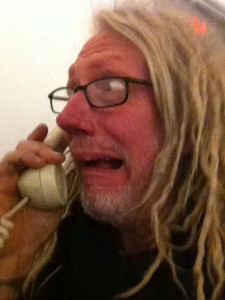Pain is an almost universal human experience, and one which almost all of us want to avoid. It’s said (and many might agree) that whereas we can tolerate the thought that we shall die, the thought that our deaths may be excruciatingly painful is hard to contemplate, and for some of us that fear justifies euthanasia, or legally assisted suicide, even when doctors reassure us that pain relief is available at the end of life, and is generally effective in controlling it.
Pain probably doesn’t need definition, it even defies definition. But pain can be usefully described in terms of its characteristics. Doctors use the terms crushing, lancinating, throbbing, colicky, gnawing, boring, burning and twisting because these are regularly used by patients to describe their experience of pain, and are subjectively recognisable, as well as being characteristic of certain medical conditions to the extent that they can sometimes justify diagnosis of medical conditions without much further examination or tests.
Pain is also subjectively measurable, and a simple scale of pain intensity has been used for years: it runs from 0 to 10, with ten being the most intense, excruciating or unbearable pain, and one the least. Practitioners are taught to accept the patient’s own assessment of intensity. The days when nurses could say, “She’s exaggerating her pain to get attention, or to get pain-relief” are generally over: “Pain is what the patient says it is” is the accepted dictum.
Besides the administration of analgesic (pain-relieving) medicines, much attention is presently given to ways that people can manage pain without analgesia, to complement analgesia where its use isn’t completely effective, or where its use is not well tolerated by patients because of the unpleasant effects or side-effects it may produce. Not a few patients decline the offer of analgesia on principle (because they shun chemicals in favour of more ‘natural’ remedies); or because (like some Buddhists), analgesia is deemed likely to cloud consciousness in breach of the religious precepts they observe as an aspect of practice.
Although there are several ways of managing pain that don’t involve medication, the one I shall concentrate on here, because it may relate usefully to the Middle Way, is concerned with the idea of pain, or the ideas and assumptions that surround the experience of pain, and may influence our subjective experience of it.
One very prevalent idea about pain is that it is a kind of suffering. It is almost always described as disagreeable, often extremely so, although for some otherwise ‘normal’ people it’s a sought-after item on the menu of aphrodisiacs that heighten sexual pleasure . However, it also disables, or is prone to disable, the “sufferer”. I attach quotes because this is a hugely typical way of describing an individual who is experiencing pain. Pain can seriously and adversely affect the “sufferer’s” capability and capacity to discharge normal functions, including automatic ones like breathing, swallowing or eliminating. Pain may make life very difficult.
Pain can also cause mental distress, and often does so. The experience of pain may be accompanied by thoughts that preoccupy or dominate consciousness: “What’s wrong with me?”, “What’s causing it?” “When will it stop?”, “What can I do to get rid of it?”, “Is it getting worse?”, “Why isn’t it going away?”,What have I done to deserve it?”, “Can someone help me?” Pain may be attended by anxiety, fear, and sometimes by guilt or anger. Pain which comes and goes (intermittent pain) may give rise to crippling apprehension and vigilance for signs that pain is returning, both of which can interfere with the activities of living.
Another possible accompaniment to pain is the idea that pain is a punishment, deserved or undeserved, and that to experience pain is to be a “victim” of some kind of retribution. The idea that “it’s my own fault” may pop into a “victim’s” mind without warning, and take firm root in consciousness. Some patients find that to accept responsibility for one’s pain is a way of reconciling oneself to the experience, and even of mitigating it to an extent. This capacity we may enjoy to change the subjective experience of pain is something I shall return to in the posts that will follow.
Readers’ comments will be very welcome, especially comments in which a personal experience of pain is addressed, or ideas about managing or coping with pain. Readers will know how to stay within their ‘comfort zone’ in doing so, bearing in mind that these threads are accessible to the general public.

